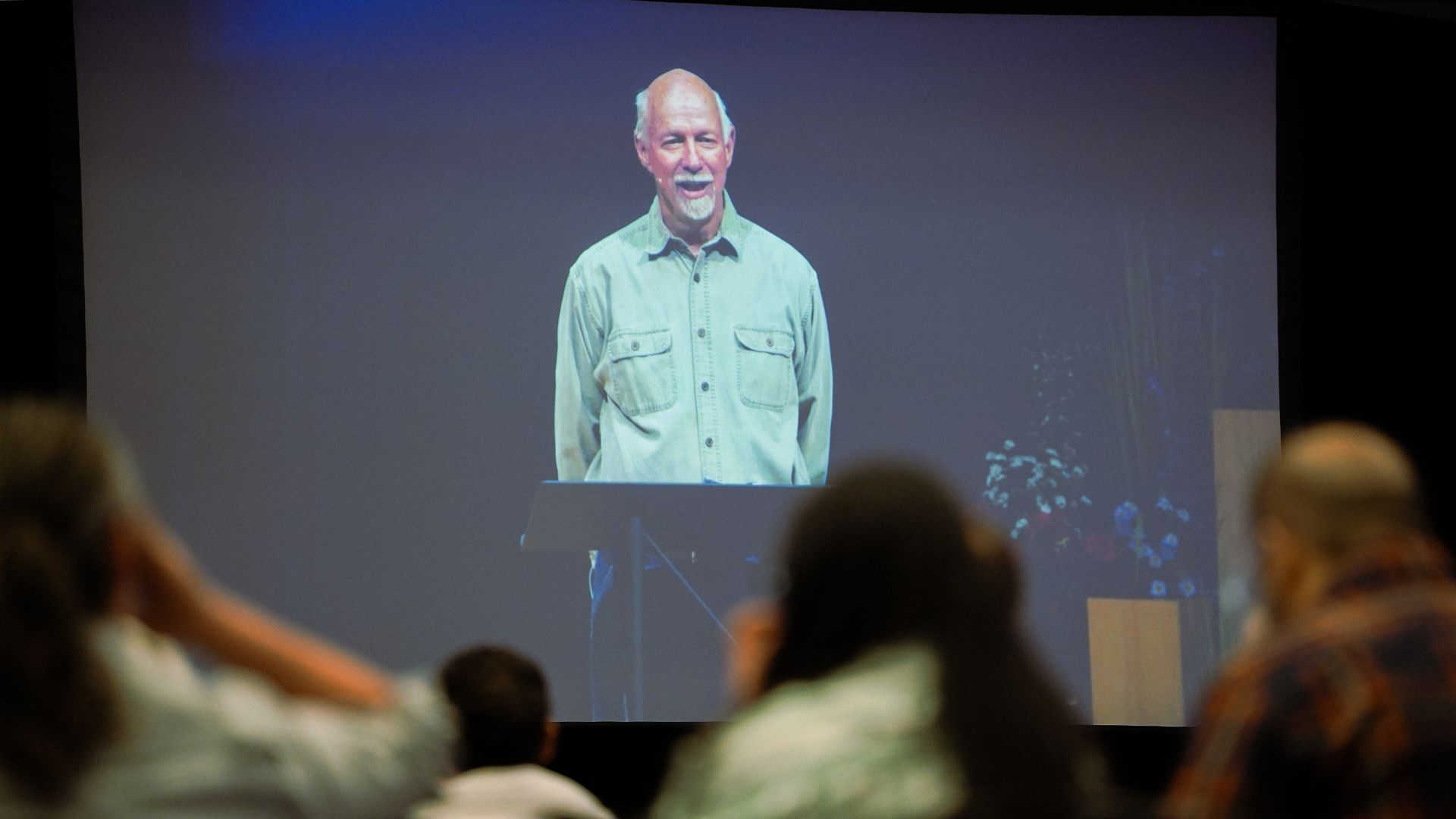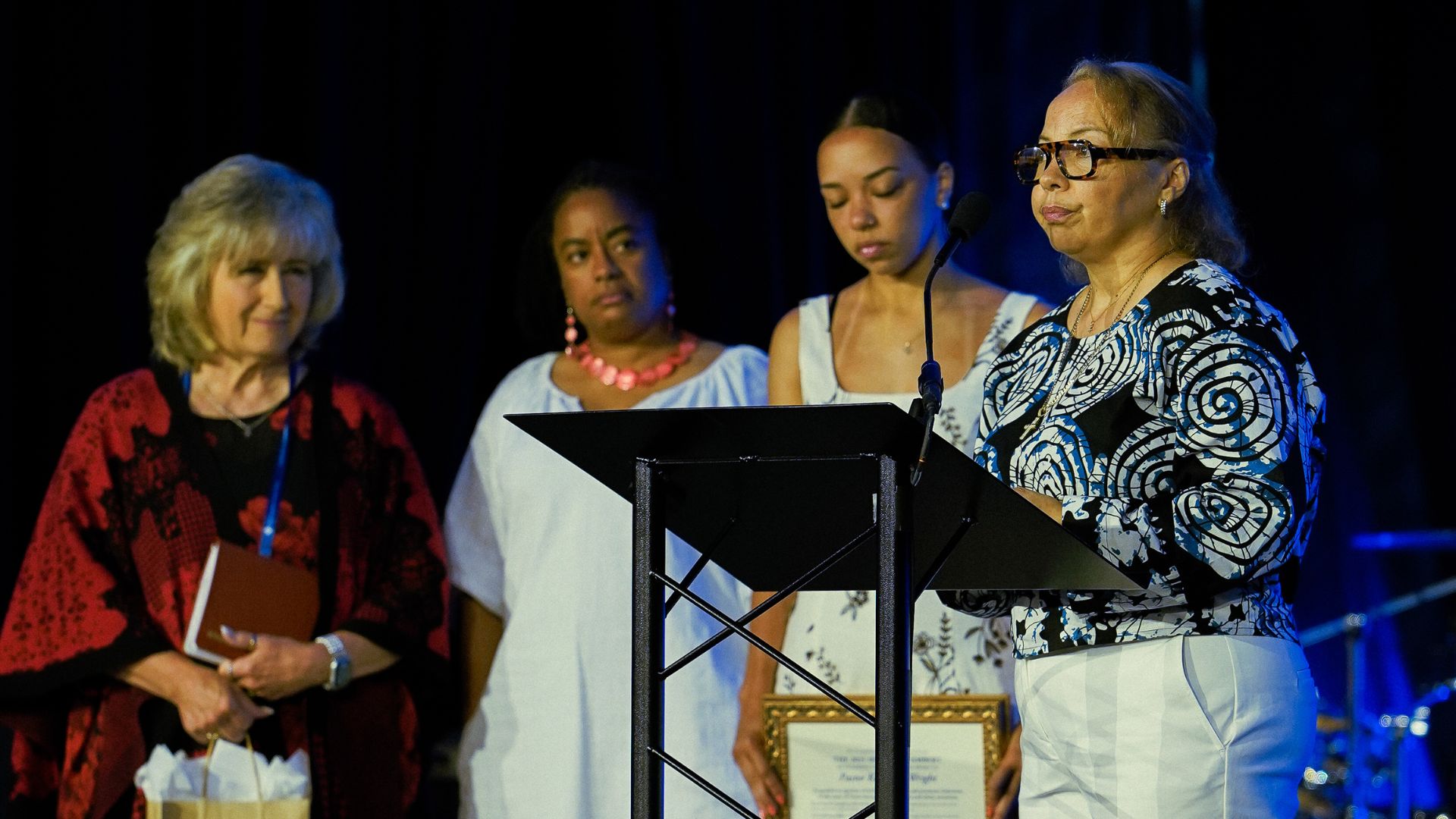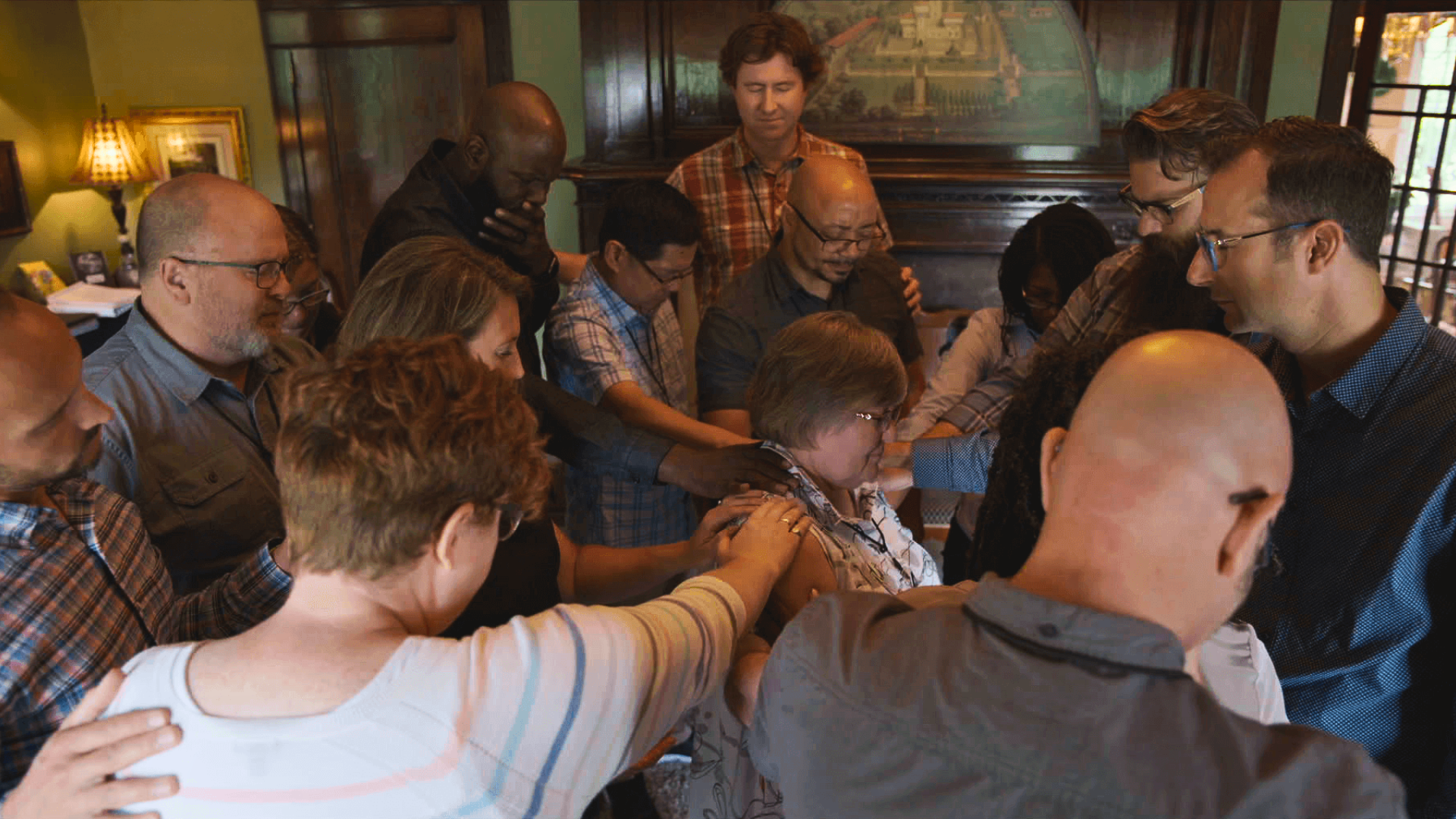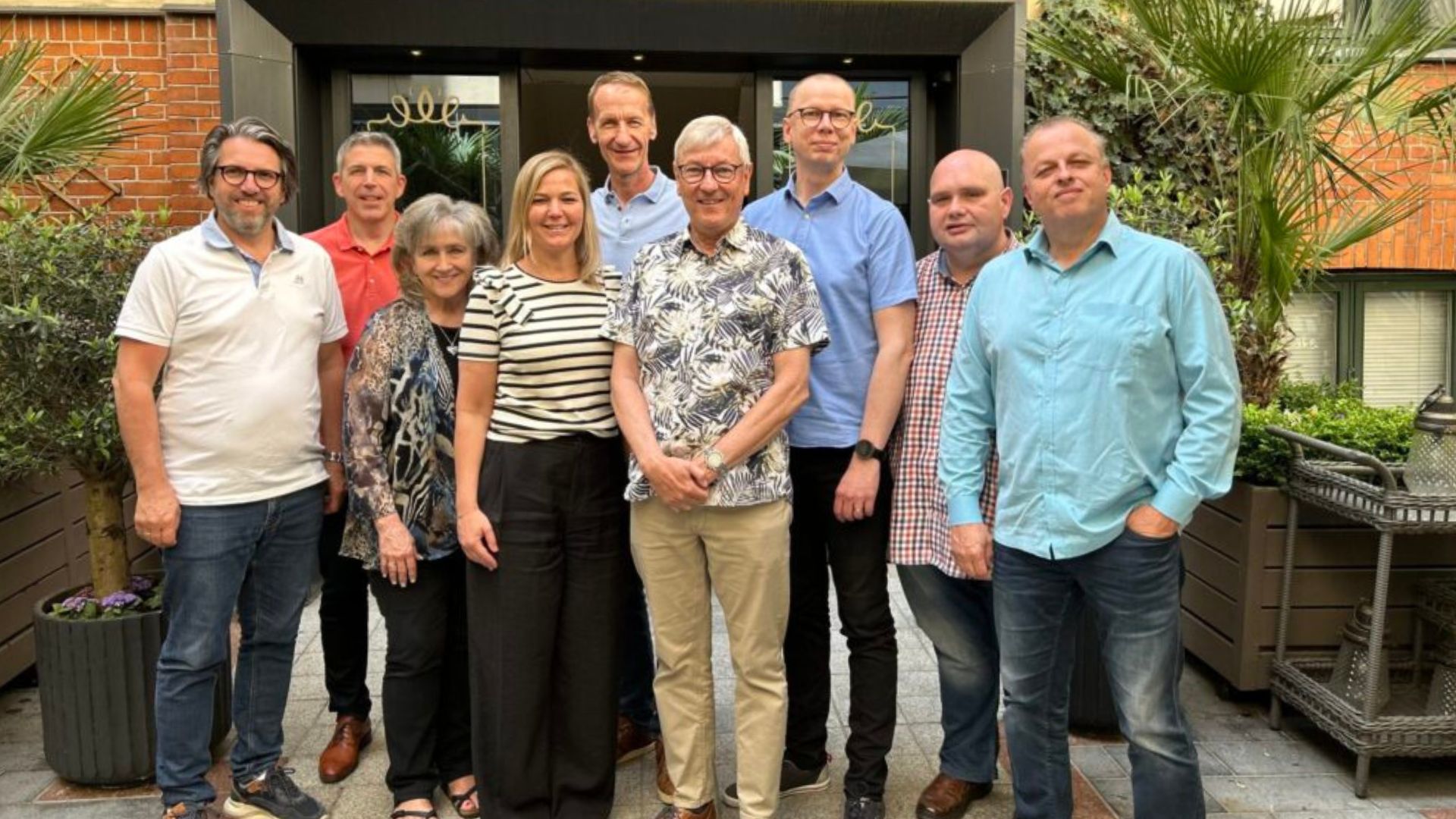
Reimagining Church
for a post-pandemic world
A conversation with John Wenrich and Ed Stetzer
July 7, 2020
In May, when churches were in the second month of a nationwide shut- down, John Wenrich, president of the Evangelical Covenant Church, sat down with Ed Stetzer, contributing editor for Christianity Today, executive director of Billy Graham Center at Wheaton College, and interim teaching pastor at Moody Church in Chicago, to talk about ministry and leadership.
John Wenrich: We all long for a time when we return to a world that is normal. Even though we cannot predict the future, we can have a mindset of post-pandemic. COVID-19 has changed the world—how we relate to each other, how we work, and how we live. It has put churches and church leaders in challenging situations, creating high stress, anxiety, and financial pressures. At the same time, there has been tremendous opportunity to show and share the good news of Jesus.
What are some marks of churches that are actually thriving through the pandemic?
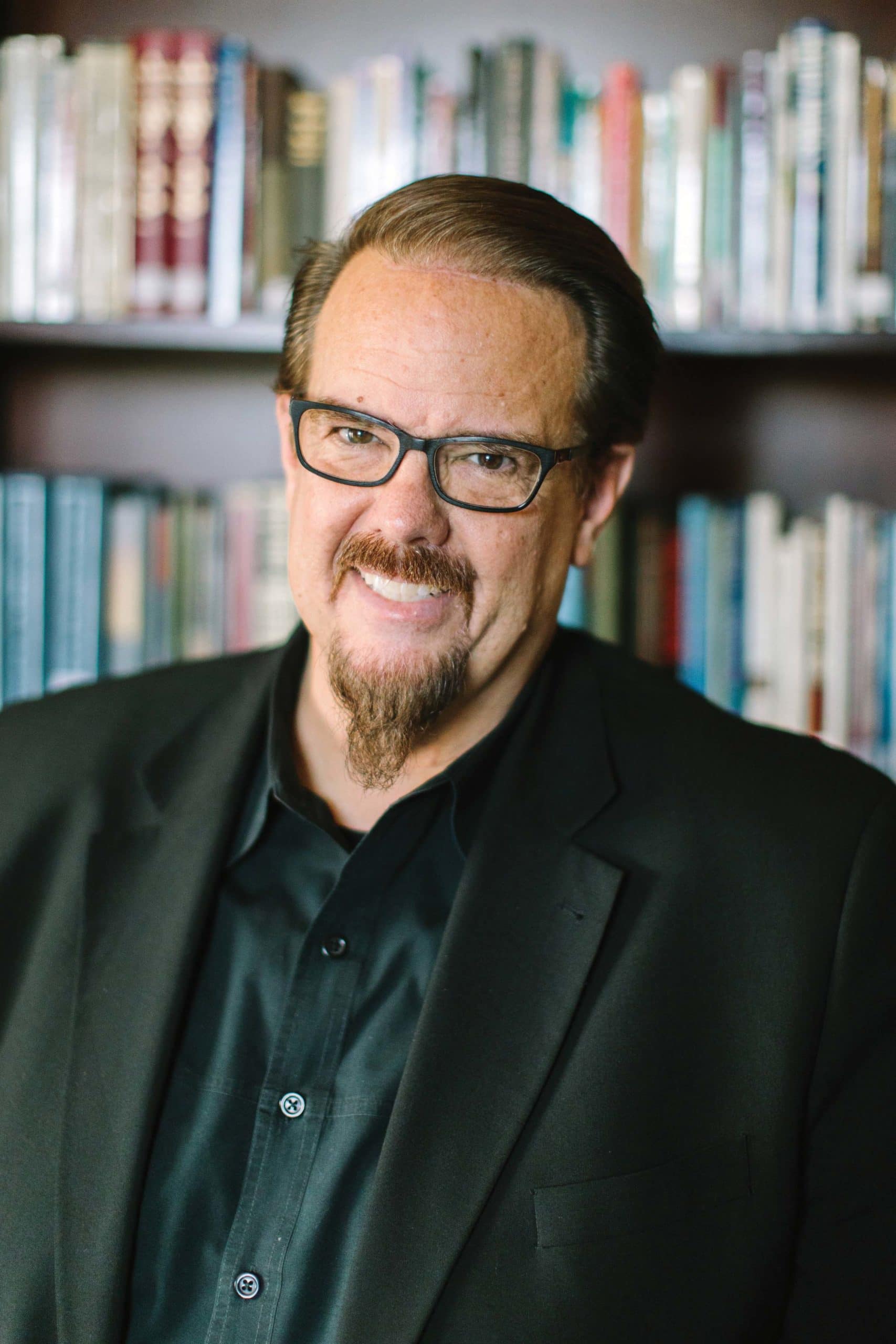
Ed Stetzer: Some of the marks are preexisting finances. That’s not necessarily something churches did well. It’s something they were before this hit. We’ve surveyed a couple thousand church leaders, and found that rural and urban churches are being hit disproportionately hard, whereas suburban churches are doing better. Churches that already had online giving are doing better.
The unemployment crisis is mostly a crisis of the lower middle class, for now. So if your church is in that demographic, you’ve seen a huge economic hit. We found more than 10 percent of the churches we surveyed were down more than 50 percent or more in giving. We think 6 percent of churches we surveyed may be in danger of closing. A lot of churches recognize that this could be an existential crisis for them. But many are more focused on serving their community than saving their own church.
Right now Illinois is the strictest state in the whole country for churches, and there is no set date when churches might begin to meet again here until there’s a vaccine, which we know could be well into the next year. So some churches are talking a year or more until they can gather. That’s a huge deal.
At the same time, churches all over the rest of the country are meeting. Churches in places like Georgia, Texas, Tennessee, and maybe Sweden are the canaries in the mine. If two months from now, people in Georgia are experiencing mass sickness and we’re back to exponential growth of the virus, that will make an impact.
Some are saying, “This is it. The church has changed forever. We’re never going back to the large church. The large church is done.”
But we’ve been hearing that for 30 years. For years we’ve been writing books and angsty blogs and podcasts saying, “The church has got to get out there and leave the building.” And in three months, God did what 20 years of podcasts and blogs didn’t.
I don’t think the church has changed forever. I think the most likely scenario is that five years from now, we’re going to look like we did last year.
Our call is to help our churches serve their community and share the gospel. I want marginalized communities to know that the people of God are here. I want our neighbors to know that the people of God are here. Churches that are excelling right now are those churches that have said, “It’s not about us. It’s so God will be glorified.”
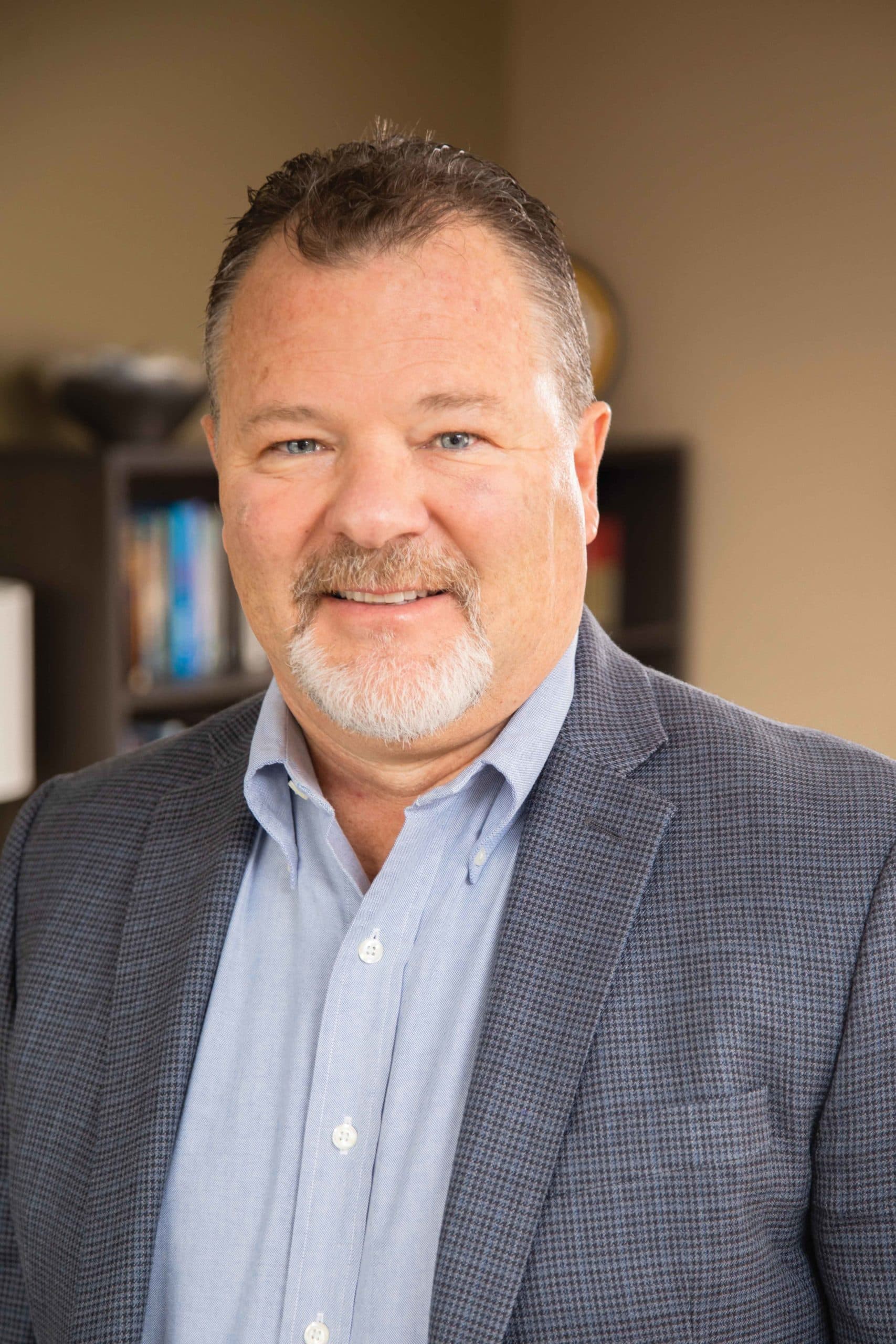
Wenrich: Everyone wants the COVID-19 curve to flatten. But I hope our innovation curve doesn’t flatten. Maybe a more biblical way of saying that is when the Spirit is pouring out new wine, the old wineskins can’t contain it. We need new wineskins. Could you comment on the new wine the Spirit is pouring out on the church, which we need new wineskins to contain?
Stetzer: It’s a little tricky because I don’t think we know yet. Currently there’s no vaccine for hundreds upon hundreds of illnesses, including certain viruses. In one scenario, this is a permanent part of the cyclical nature of our ecosystem from now on. Perhaps we’ll develop herd immunity, but people are getting it again. So in a worst case scenario, there’s no vaccine and there’s no immunity.
In that case, we’re probably going to be dealing with being an accordion church. In hot spots in the U.S. right now, things are particularly restrictive, whereas Georgia is pretty wide open. However, Albany, Georgia, is a big hot spot. Say you have a church of a hundred people, and then you get a ruling that you can only meet in groups of ten because we have to slow community spread. That means you’re shrinking down—that’s family units and maybe some friends.
You may find that you’re going to be at a difficult level of flexibility for a long time. However, to your point, what a great opportunity to see women and men lead groups and ministries. I believe the Lord is raising up hundreds, maybe thousands of people as pastors that nobody considered as pastors before. They’re doing amazing work as small group leaders who have now been empowered to lead and to care and to minister.
Wenrich: What can we learn from the global church here in North America?
Stetzer: In places where epidemics flow through more regularly, the church of Jesus Christ says, “We’re just going to keep living for Jesus, showing and sharing the love of Jesus.”
Let’s learn from them. The church in Brazil is taking a holistic approach to ministry. They’re not sitting around saying, “How do we make sure that we both care for the needs of people and we share the gospel with them?” They’re just saying, “How do we join Jesus on mission?”
Wenrich: What are your thoughts about church planting right now?
Stetzer: We recognize that this is a grievous time. We grieve with those who grieve, and we join Jesus on his mission in the midst of that—we can do both together.
Companies are being started right now that are going to be major companies 50 years from now. If you’re thinking about planting a church, this may be the time, because the size fits the need of the moment.
Some people are saying, “Well, we have to gather online.” But eventually the church will need to gather with feet and faces, not just electrons and avatars. You can certainly start right now, and what a story you will have to tell. “In the midst of a global pandemic, we shared the gospel, we planted a church, and then we got on mission and continued to reach people.”
Wenrich: This is a hard time for pastors. Almost overnight we went from onsite to online. One of the challenges is, how do you go from clicks to bricks? What are two or three things in crisis leadership that are nonnegotiable?
Stetzer: In crisis leadership, you have to focus differently. You have to think through policies and procedures regarding safety precautions. Communication has to go way up. You should be at double or triple the communication from where you were before. And you have to look at finances and retool there too.
Wherever you may be, you’re going to have people who think that you lack faith and you don’t take seriously religious liberty if you don’t start meeting. And you’re going to have people who think it is reckless and dangerous if you do meet.
I’m encouraging churches to communicate by saying, “In consultation with our county and our state, we have some forward opportunity to do this. As the leaders in our congregation, we have sought and discerned in a time of prayer what the Lord would have us to do. So we have decided, under the Lord’s leadership for our church, that we’re going to do X.”
You may say you’ll reopen with specific protocols, such as using one set of doors on the way in and another set to exit. You may say no one sits within six feet of anyone other than their family unit.
And let me say a word regarding masks. A lot of people think wearing a mask is a sign of compromising cowardice right now. So if you decide that you’re going to wear masks in church, I’d recommend telling your congregation, “We recognize that people have different views on masks, but this is the time that God has called us as leaders to walk with you together. And here’s what we’ve decided. We think this honors the older members of our congregation, people with asthma, and others such as those who are on chemo. This may not be the decision that some of you have made in other contexts. But this is what we’re going to do.
“We also recognize that we have to have only 25 or 50 percent seating capacity. So we’re creating a kind of seat reservations, which we’re asking you to make ahead of time.
“If you feel unsafe, or you’re older or you have certain preexisting conditions, you might not want to come. And we ask that you continue to worship with us online.”
That’s leadership, right? If you went into pastoring because you thought everyone would like you, you have chosen badly. If you don’t have 5 or 10 percent of the church mad at you at any given time, you’re probably not doing significant things. Make a wise decision, and overcommunicate. Lead your congregation through this.
Wenrich: What words of wisdom would you give to pastors in terms of practicing self-care during this time?
Stetzer: We need you to finish. We need you to go across the finish line with us together. So we need self-care on this journey.
Early in the shutdown, my wife and I were fighting over stuff, and it was strange because that wasn’t typical for us. I felt this stress. The days were all alike—I didn’t know the difference between a Friday and a Sunday and Wednesday. I saw rising tension with my family and shortness with some of my staff.
One day in April, I sat down, felt overwhelmed, and just wept. I said, “I need to get a rhythm.” I finally took a day off. And then I had to say to my staff, “Listen, I know this is like do as I say, not as I did, but is everyone okay?” Now we are doing what we call a “mental health check,” asking each other, “Hey, how are you doing? How is this?”
I think everyone has some degree of stress, maybe some low-level depression. I mean this is a big deal, and it’s okay to lean on other people.
We’ve got to create new rhythms. We need some margin and daily rest. If we end up having a secondary crisis among caregivers, like pastors, that doesn’t help anybody.
Recommended resources, including PowerPoints, videos, podcasts, and more are available at edstetzer.com/resources.
To watch the entire interview, click here or visit our COVID-19 resource page at covchurch.org/covid-19.




